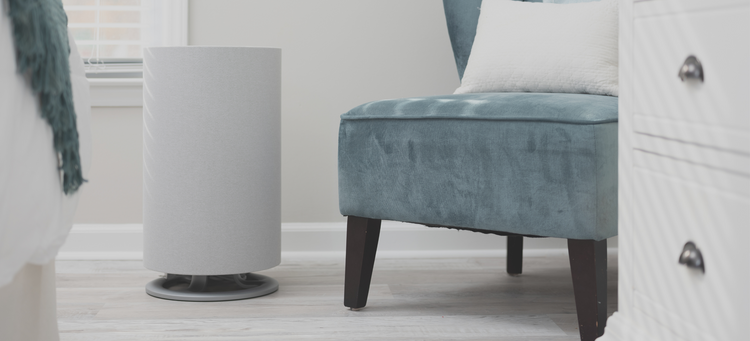5 Ways To Create A Positive Mental Health Environment To Combat Air Pollution
Air pollution has been proven to negatively affect mental health from causing a decline in productivity to an increased risk of anxiety and depression. As more evidence linking air pollution to mental health is found, it’s important to protect yourself from the effects of air pollution on your mental health.
How can the effects of air pollution on mental health be mitigated? There are specific things you can do to try to mitigate mental health issues arising from air pollution. The first step is to monitor the air quality in your area and understand how unhealthy ambient outdoor air can affect you both physically and mentally.
We’ve listed a few ways to help create a positive mental health environment for yourself and your loved ones as we all continue to combat the effects of air pollution.

Maintain A Healthy Lifestyle
Maintaining a healthy lifestyle is crucial to sustain positive mental and physical health. A 2020 study suggests there’s a connection between traffic-related air pollution and mental health leading to an increased risk of mental disorders.
There are essential actions we can take to maintain a healthy lifestyle like drinking enough water in a day and getting an appropriate amount of sleep. Another action to consider is walking more instead of driving if you’re able to because surprisingly there’s more pollution exposure in a car. It’s at least a good idea to walk outside for exercise, fresh air, Vitamin D from the sun, and to avoid car pollution.
Gather Information
It’s important to gather information so you are well-equipped to understand the mental and physical effects that air pollution can possibly contribute to. Air pollution can worsen anxiety, depression, heart disease, lung cancer, and negatively affect other respiratory diseases.
If you experience sudden unexplained symptoms, physical or mental, it’s worth checking the air quality in your area with a tool like MapMyAir to see if unhealthy air quality could be a factor.

Stay Connected
Maintaining relationships is crucial to creating a positive mental health environment. Keeping and continuing to build those connections with people you love in your life will help with your mental health, and with theirs.
Being able to reach out to someone when you need to talk and having support from people you love is a great way to remain calm even when you’re not feeling okay.
Seek Professional Help
Having relationships with friends and family is important, but sometimes we need to seek professional help. How can you effectively monitor your mental health? It’s important to listen to your mind and your body and do something about long-term changes you notice.
If you notice changes like increased stress and anxiety that aren’t going away with relaxation techniques and are negatively affecting your life, then it may be time to talk to a professional for help.
Take It One Step At A Time
Life is overwhelming, we all know it, and things tend to pile up whether it’s school, work, or simply the laundry. It’s important to remind yourself you’re doing your best, and it’s okay if everything doesn’t get done immediately.
Take things one step at a time. Finish the laundry or wash the dishes or read a chapter of your book. Do something small to feel productive and allow yourself to be proud of that accomplishment, no matter how small.







